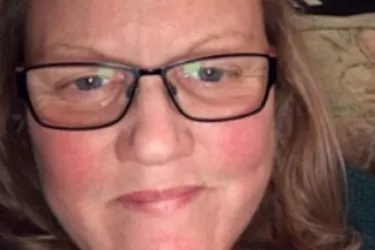Managing anxiety with creativity
Damien blogs for us about using creativity to manage his anxiety.
I’ve spent most of the last five years doing two things; making films, and worrying. In fact, they’re pretty inseparable, as my worst patches of anxiety have been set off by stress at work. It’s slightly ironic that the most stressful projects tend to be the ones involving the most people, yet to suffer anxiety is to feel that you’re totally alone, in a cold, stark world where no one else can reach you. Even those people who knew about my battle with excessive worry only ever saw little snapshots here and there: that time I’d go back and check the door was locked one more time, or the time I would put off doing something which just seemed too risky. It was tough for them to empathise, because they couldn’t get a handle on the thought process which made these decisions seem logical to me. I knew this, and it made me feel even more lonely.
Last summer I was ready to make a new film. Anxiety suddenly seemed like an obvious topic - I knew a fair amount about it, and had recently found that many of my friends were suffering from the same thing. Apparently it was much, much more common than I’d realised, but we were all convinced that we were alone, and were suffering in silence. This topic needed to be talked about, loudly and clearly, and so The Painter (originally The Worrier) was born. I wanted to show the whole picture: my slant on why anxious people act as they do and how the thinking behind their actions works.
The film is a 30 minute docudrama (it’s basically a fake documentary, a bit like This is Spinal Tap but with fewer LOLs). It follows a young painter as he starts work on his first major commission, and when he hits a stumbling block with the project his nerves turn to stress which turns to increasingly serious anxiety. His worrying affects his friendships and his ability to work, but he has to finish the project.
Truth be told, there’s an awful lot of autobiography in the story. When writing the script I was forced to confront the nature of my own anxiety, so that the main character would be plausible. I had to dig deep into how I thought about threats and danger, and how my own anxious logic progressed from A to B to C. Once I started rehearsing the actors I had to do this again, explaining in detail how and why the anxious mind arrives at conclusions which might seem unreasonable to others.
As filming progressed and then wrapped up, something entirely unexpected happened. I started worrying less. This surprised me; in fact I’d half expected filming to trigger my anxious habits. Now, though, I think I know why it helped. Without a doubt, I understand my anxiety much better having worked on the film. I know, much more precisely, how and why my reasoning works the way it does. Knowing how my thought process works means I’m able to anticipate it and challenge it much more effectively - it isn’t an ominous machine holding me captive anymore, just a set of rules and assumptions that aren’t always set quite right. This has been a revelation.
I’m not free from the influence of anxiety yet, certainly not. But I feel like I have a say in how it affects me now, and I’m confident that this is the start of a liberating process. Don’t be afraid to look your worrying in the eye and really study it. Don’t tolerate vagueness; interrogate your anxious thoughts and demand that they explain and justify themselves to you. It will be scary and uncomfortable and you may not feel ready to do it, but please try (even if you don’t see results at first). Odds are your worries won’t stand up to scrutiny, but even if they do you may well find that understanding them makes them easier to manage.
Living with anxiety can be really difficult, there is support available. Contact your local Mind or call our Infoline on 0300 123 3393.


Information and support
When you’re living with a mental health problem, or supporting someone who is, having access to the right information - about a condition, treatment options, or practical issues - is vital. Visit our information pages to find out more.
Share your story with others
Blogs and stories can show that people with mental health problems are cared about, understood and listened to. We can use it to challenge the status quo and change attitudes.

















